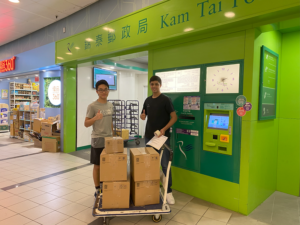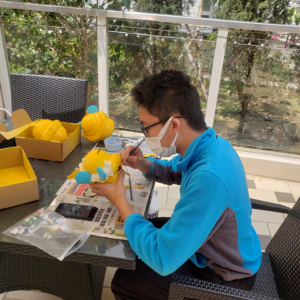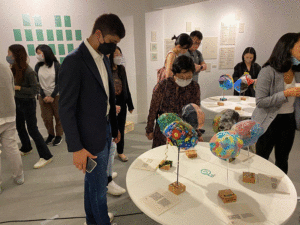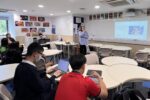The Works of Chariz: An Ukraine Humanitarian Aid Support Group
Chariz, founded in 2021 by Year 11 students Panav Kalra and Fergus Chung, is a non-profit organisation that utilises 3D printing to bridge the gap between engineering and support on a global scale. By establishing close partnerships with mental health organizations in Hong Kong and beyond, they aim to provide aid during the Russia-Ukraine war. Chariz has designed and produced over 300 pieces of 3D-printed medical gear, and alongside their international partners, led the deployment of the gear for both doctors and nurses.

Starting off originally as a mental health organisation, Chariz has now expanded its connections and pursued using 3D printing to alleviate the suffering in Ukraine. “In around May, 3D printing for Ukraine and Help Ukraine contacted us, looking to do a 3D printing project,” said Panav. They discussed with their design and management team in regards to how they can implement and innovate other technology, which ultimately led them to where they are today. With their engineering team developing 3D casts and splints which doctors could use, they are now “moving on to donation drives, which begins [here] at Sha Tin College.”
“Our objective is to provide indispensable supplies to those who are impacted by [the Russo-Ukraine war] crisis,” exclaimed Fergus. These supplies include food, hygiene products, sleep accessories, medical gear, and winter clothing items. Collaborating closely with distinguished organisations, Chariz aims to ensure that the supplies are transported safely and efficiently. In terms of the logistics of the process, the products “will be labeled and catagorised, so that [the organsations] can sort it at the facility. This way, it reduces the risk of products being useless, and also allows [the organisations] to choose and direct where the products will be flown,” Panav clarifies.

Diving deeper into the wonderful works of Chariz, they’ve not only hosted donation drives but have also provided in-depth explanations on how their 3D printed product works. Chariz’s engineering team worked closely with Ukraine Help Center, where they were given the opportunity to speak with some practitioners and doctors there to develop specific casts and splints. “We’ve created this 3D printing cast, where doctors can simply put it in hot water or heat it with a hair dryer, and they can automatically create a custom cast for the patients,” stated Panav. By doing so, this implementation is able to reduce the medical equipment they require, and doctors will have increased mobility. Alongside this, the donation drives will help civilians and soldiers immensely, as “they’ll be given food, and winter clothing, sleeping bags, which will all support their living standards.”

With Chariz’s success also comes a few challenges, the main one being that they had to ensure that the products they collected did not go to waste. To combat this, the management team worked closely with the organisations to see which was in highest demand. Based on this research, Chariz is currently creating a schedule that STC students can follow, making it easier for them to categorise products, and easer for students to donate these products. They would like to reiterate that in the near future, all of their designs will become open-sourced, and will be sent out to STC students. “Anyone with a 3D printer can print it and give them to us, and that way we can ship them off to Ukraine, as we’re currently doing,” Panav announces.
“The more products we collect, the more people we support.” Chariz’s admirable contribution to helping Ukraine demonstrates kindness, empathy, and determination. As a community, we should help them out by participating in their donation drives that will be held soon. Huge commendations to Chariz for their hard work, especially Panav, and Fergus!
Written by: Hannah Wong


